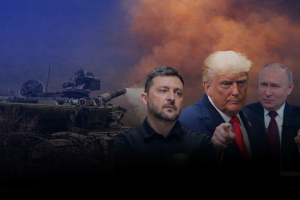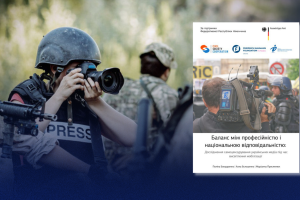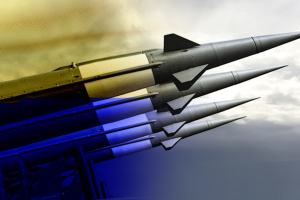The nationwide survey was conducted by the Ilko Kucheriv Democratic Initiatives Foundation in cooperation with the Kyiv International Institute of Sociology on 17-22 April 2020 in all regions of Ukraine except Crimea and the occupied territories of Donetsk and Luhansk regions. The study was conducted using the CATI method (Computer Assisted Telephone Interviewing) based on a random sample of mobile phone numbers. 2000 people were interviewed, the sample is representative of the adult population (18 years and older) of Ukraine. The sampling error does not exceed 2.2%.
The survey was funded by the MATRA project of the Embassy of the Kingdom of the Netherlands.
Press-conference "Victory Day and its place in the historical memory Ukrainians: how the nation will celebrate the anniversary of the victory over Nazism?" is conducted by the Ilko Kucheriv Democratic Initiatives Foundation as a part of USAID/ENGAGE activity, which is funded by the United States Agency for International Development (USAID) and implemented by Pact in Ukraine. The contents of the event are the sole responsibility of Pact and its partners and do not necessarily reflect the views of the United States Agency for International Development (USAID) or the United States Government.
- 39% of Ukrainians support the celebration of both dates in Ukraine: Remembrance and Reconciliation Day - May 8 and Victory Day - May 9. According to 32% of citizens, only Victory Day-May 9, should be celebrated, 14% believe that only Remembrance and Reconciliation Day on May 8, should be celebrated and another 9% do not care. This balance of opinion prevails in all regions. People over the age of 60 are slightly more supportive of the May 9 celebrations only.
- About 52% of citizens adhere to the Soviet interpretation that Victory Day is primarily a celebration of the victory of the Soviet people in the Great Patriotic War. 32% consider this date as a day to celebrate the victory of the anti-Hitler coalition in World War II and the contribution of the Ukrainian people. For 6%, this day is just an extra day off. Among youth, there are slightly more indifferent people, and among people over the age of 70, there is much more support for the Soviet interpretation. Moreover, this interpretation is more common for East and South, but the difference compared to the West and the Center remains within 10 - 15%.
- 56% of Ukrainians agree with the statement that the Soviet Union, together with Germany, are responsible for the beginning of World War II, 24% disagree with this, and another 20% are undecided. Regarding this statement, there are no cardinal differences between all age groups for up to 70 years, only among the oldest category slightly less agree with it, but there are more undecided ones. Regional differences constitute up to 19% (63% in the West agree with this statement as well as 44% in the East).
- 61% of Ukrainians do not support the participation of Ukrainian politicians in the events on the occasion of Victory Day in Moscow, 21% support this, another 18% are undecided. The least support for this idea is in the West and in the Center - 12% and 18%, respectively. In the East and South, 29% support such a theoretical visit, but still, the majority in these regions (about 50%) are against this idea.
- The majority of Ukrainians (51%) are unaware of the mass events called the "Immortal Regiment," which are held on May 9. Another 12% know about them but treat them negatively. 18% are aware and positive about it, 12% are neutral. In all regions, more than 50% do not know about this event, except for the East, where awareness is slightly higher (33% know nothing). There are also more positive attitudes in the East - 32% against 25% in the South, 15% in the Center and 9% in the West.
- Recognition of soldiers of the Ukrainian Insurgent Army (UPA) as fighters for Ukraine's independence is supported by 44% of Ukrainians, another 22% are against this decision; for 16%, it is indifferent, and another 17% of respondents are undecided. It is expected that the West and the Center are more supportive of this decision. Recognition of UPA soldiers as independence fighters in the Eastern and Southern regions is supported and not supported by approximately equal shares of 30% of citizens.
- About a third of Ukrainians support the decision to ban the St. George ribbon, but about a third do not. 25% of respondents are indifferent to this. The most significant share of supporters of this decision has been observed in the West (44% support, 23.2% do not support), in the Central region opinions are divided in half (30-31 %), the least supporters - in the South and East (about 20% support this decision, 40 % are against it).








